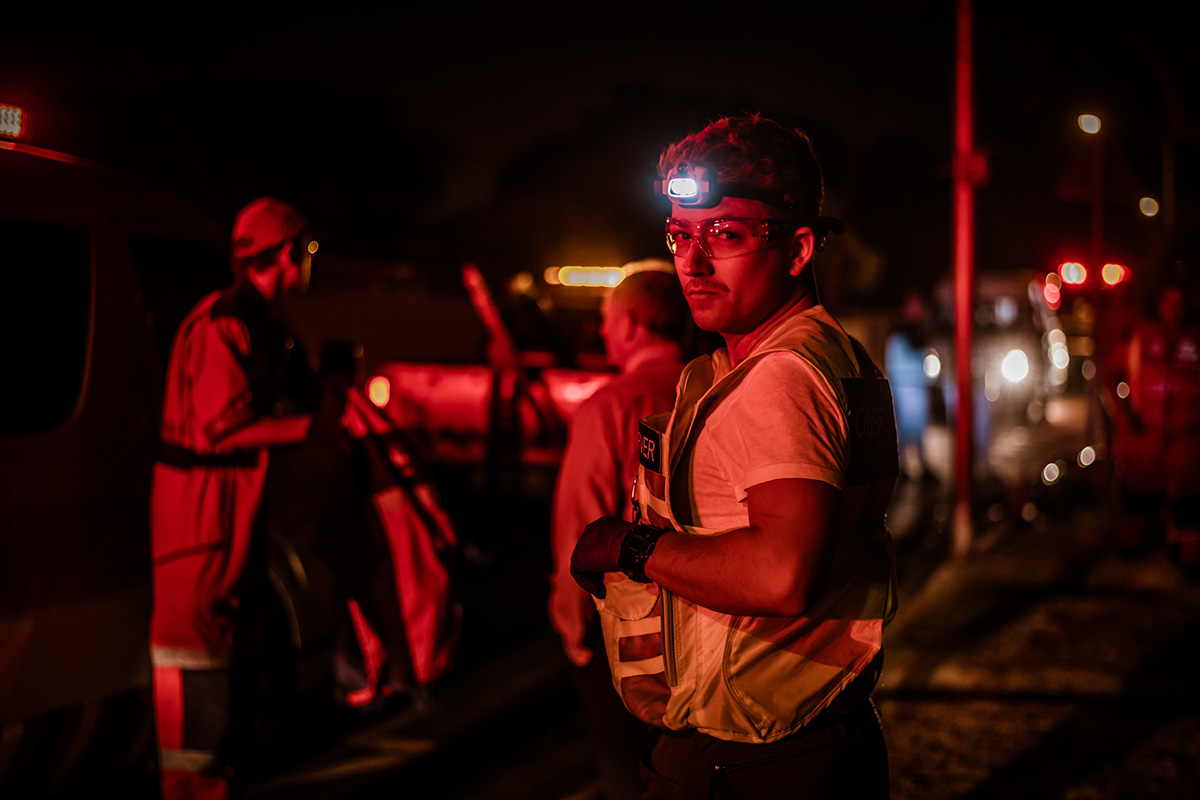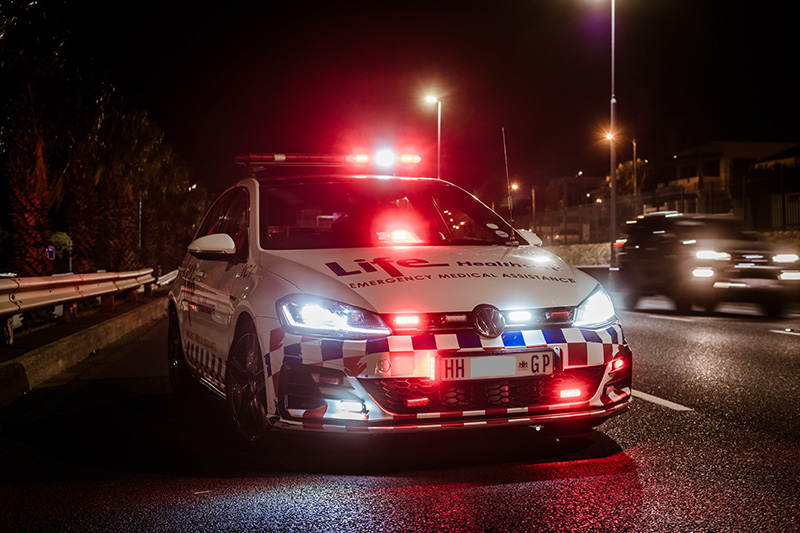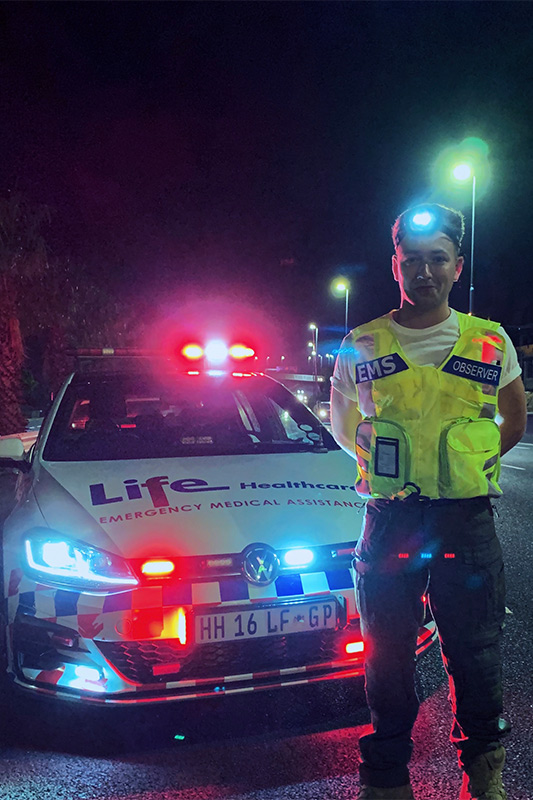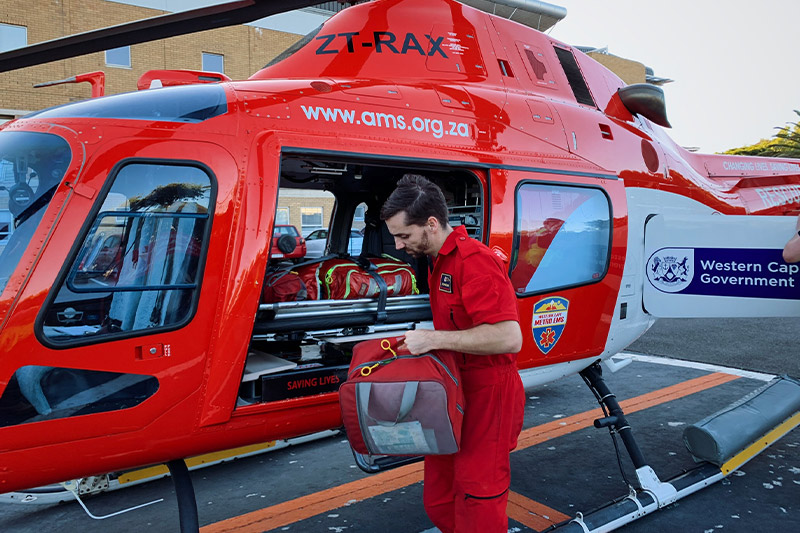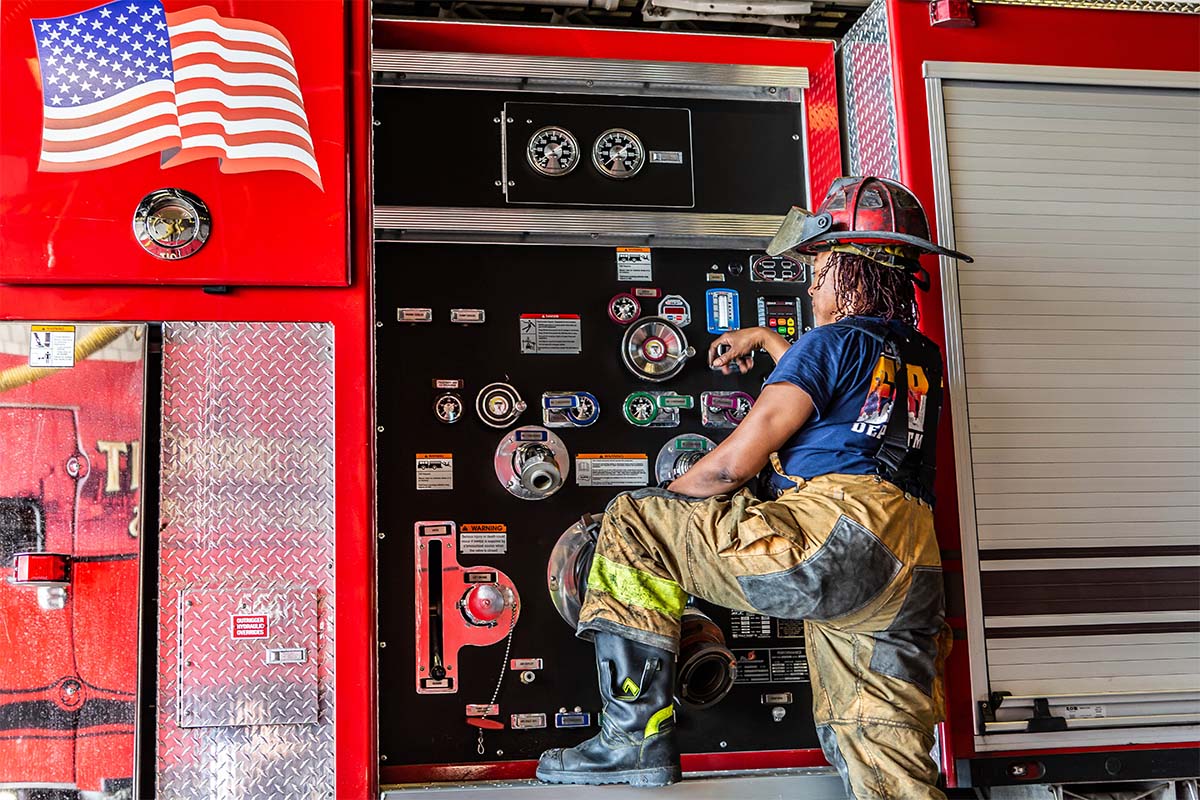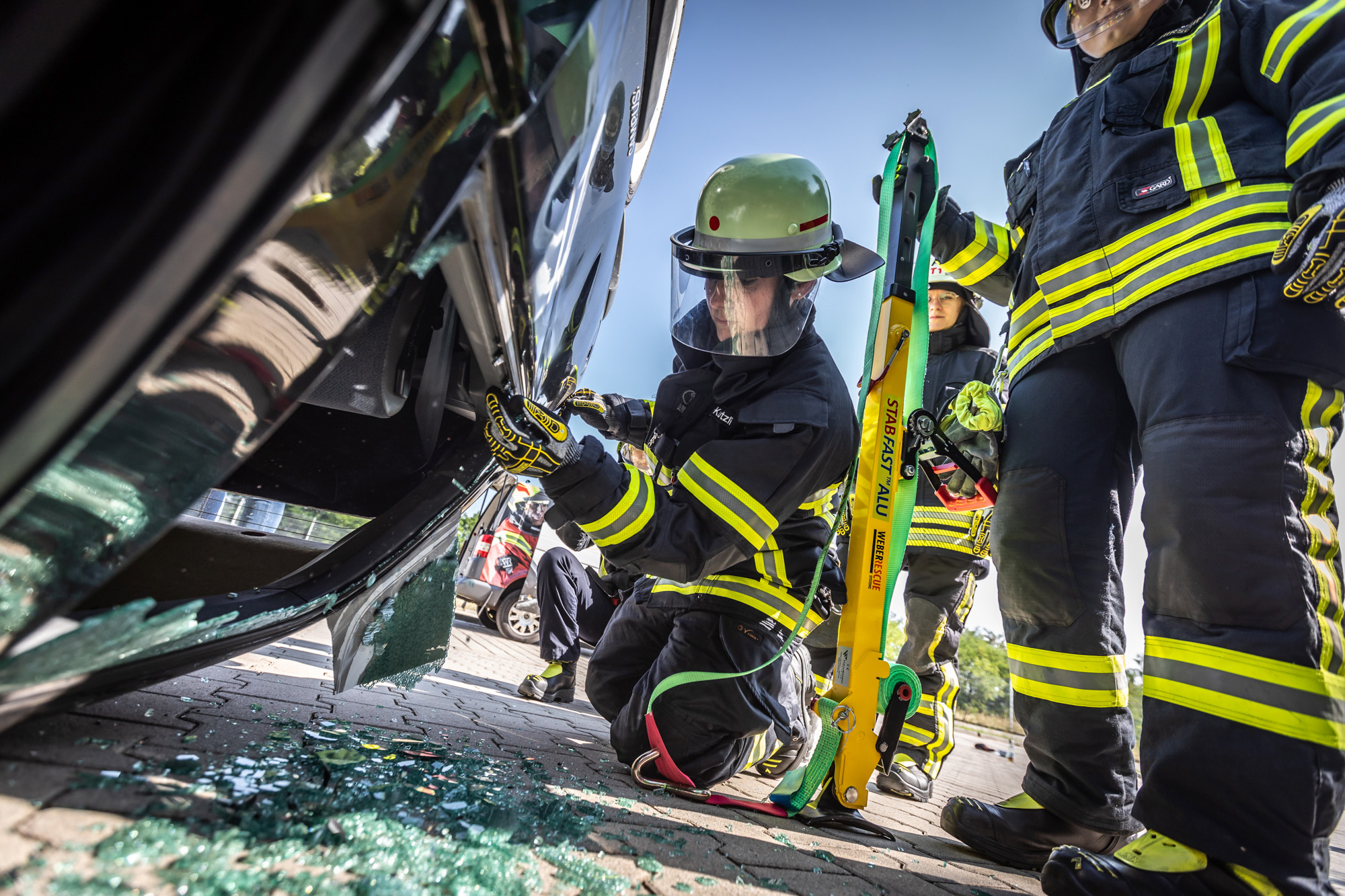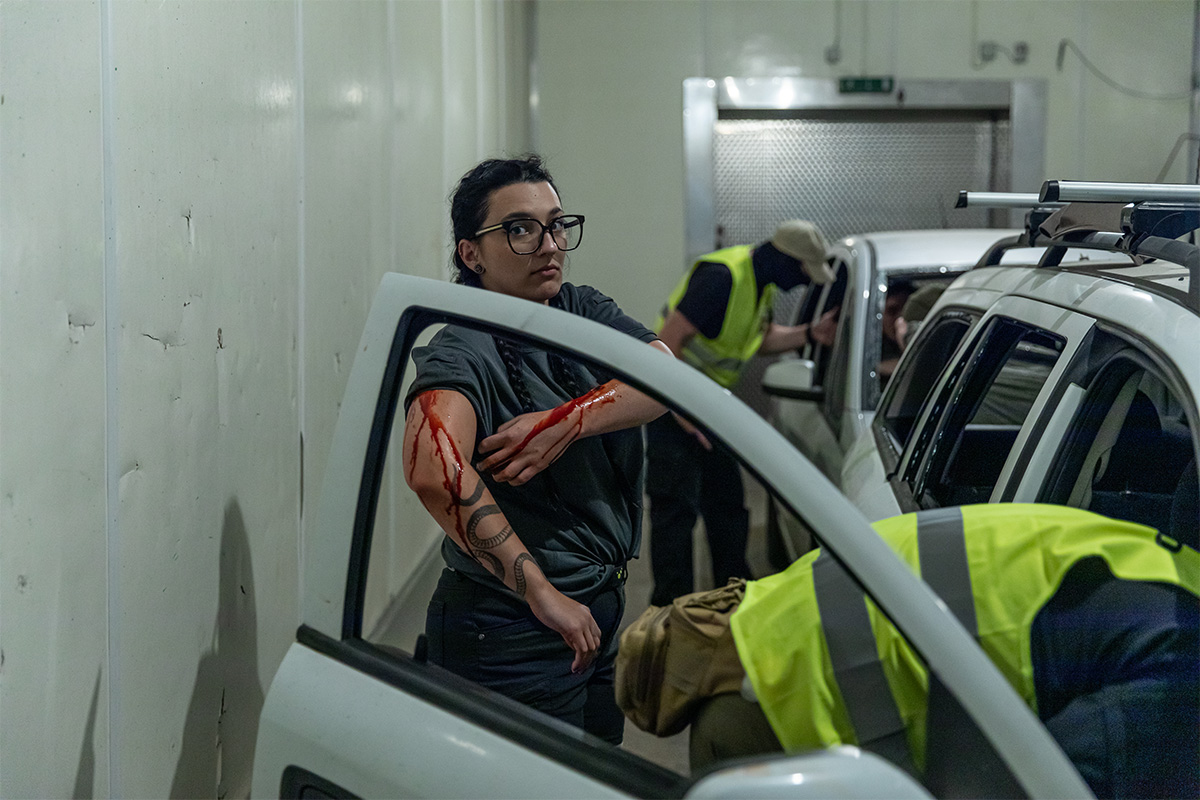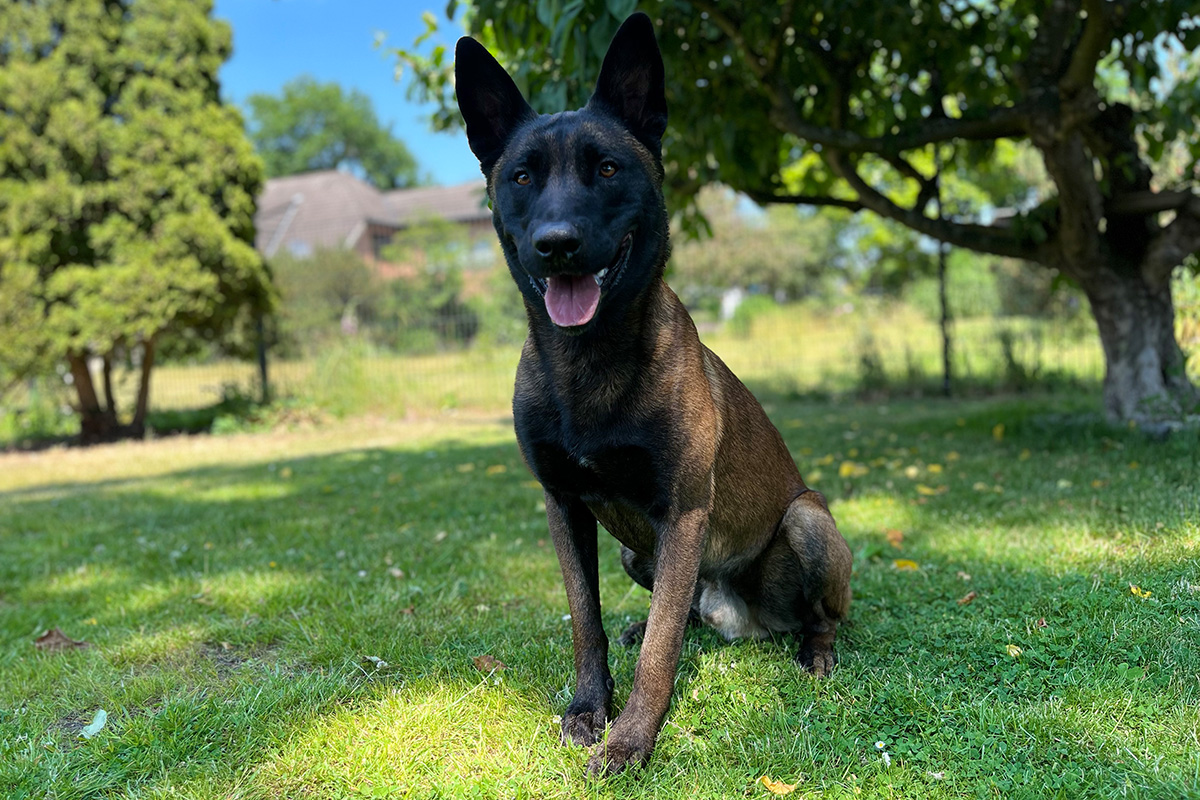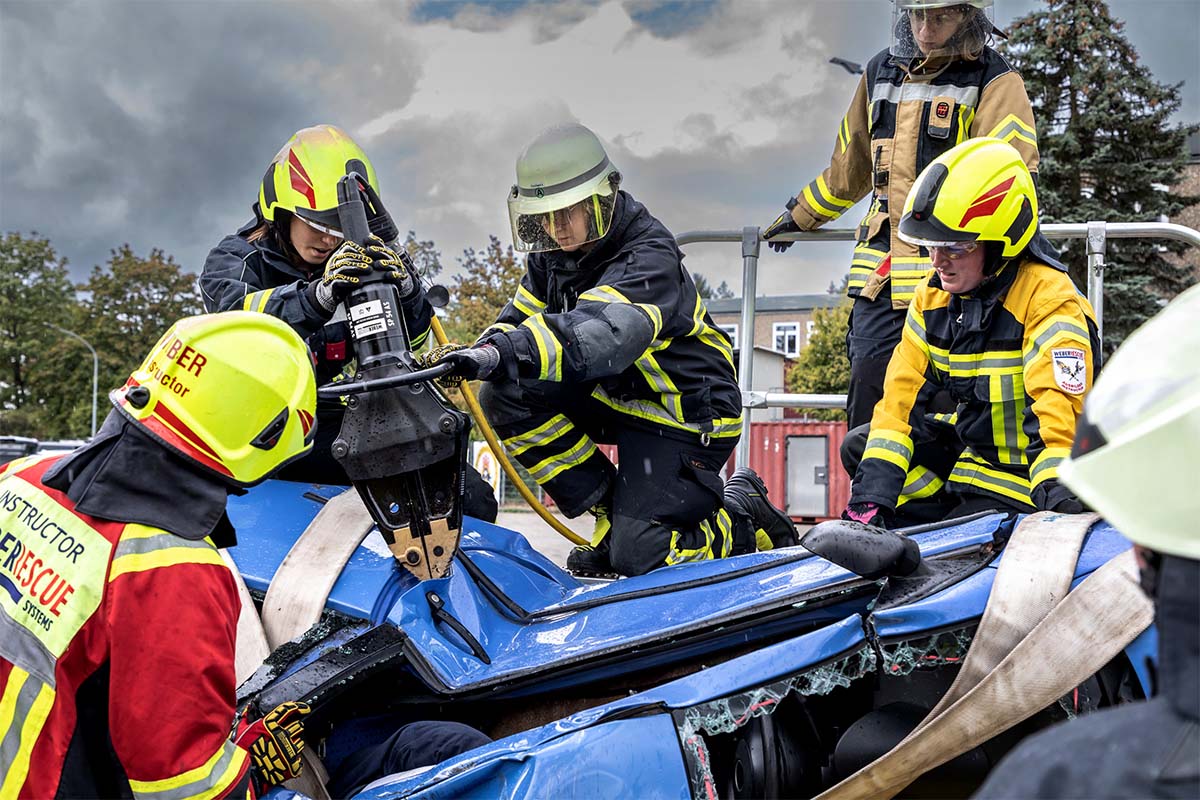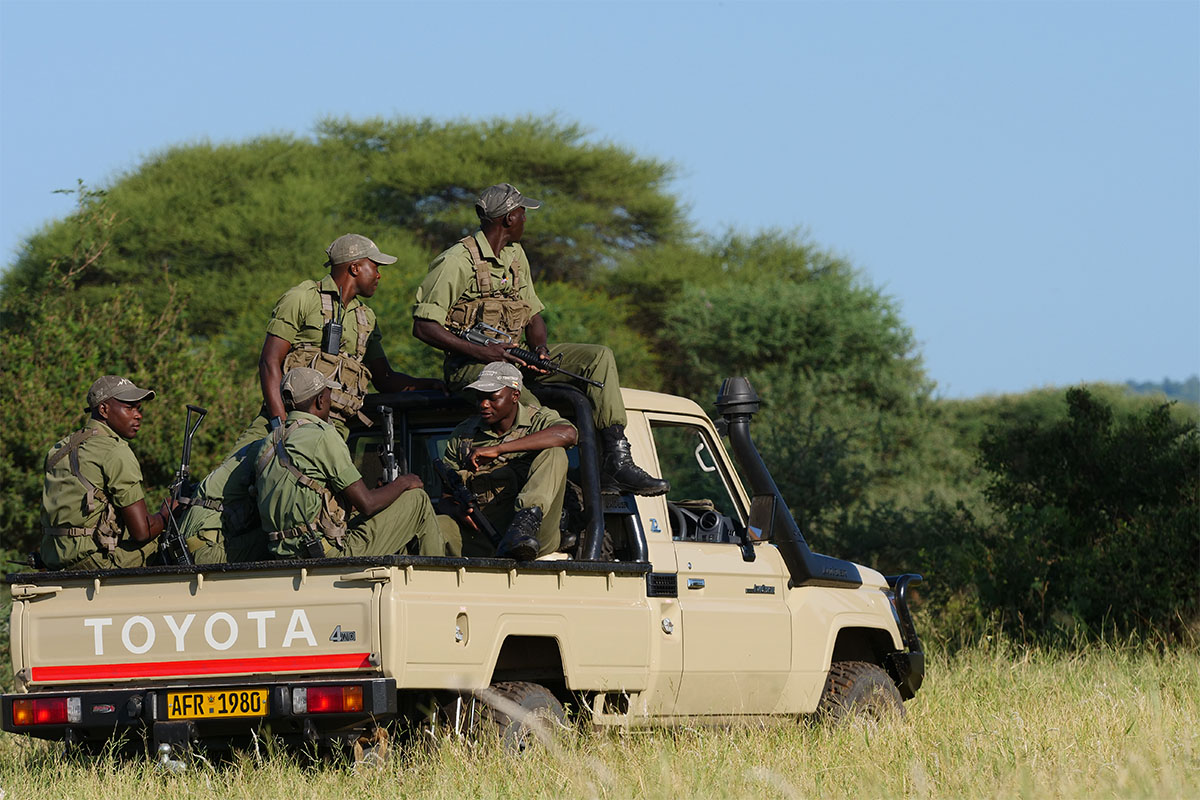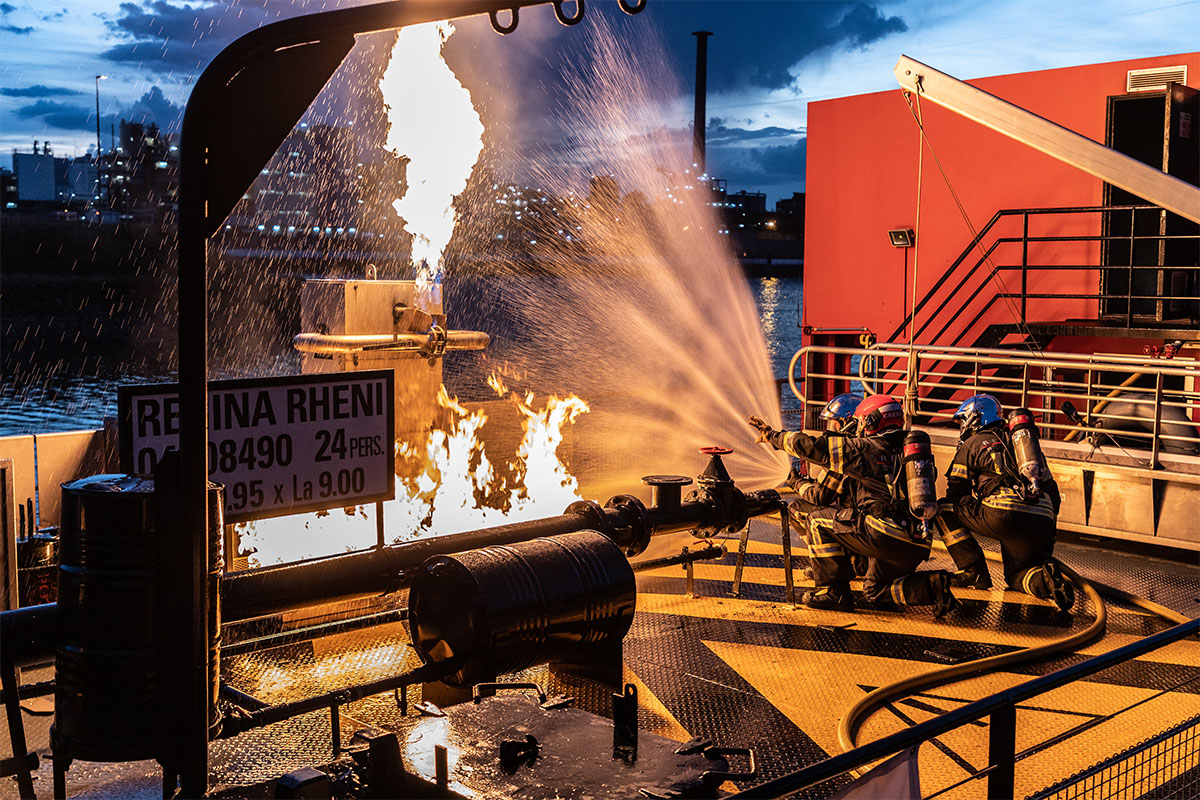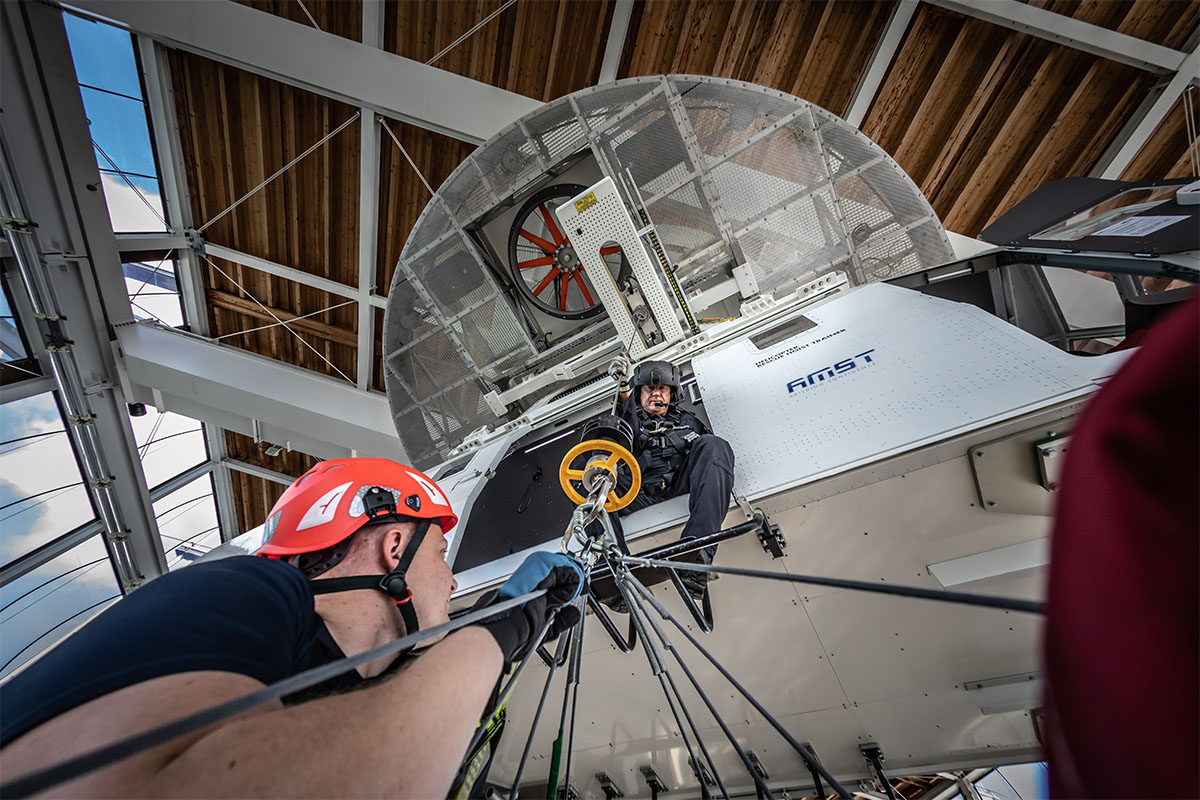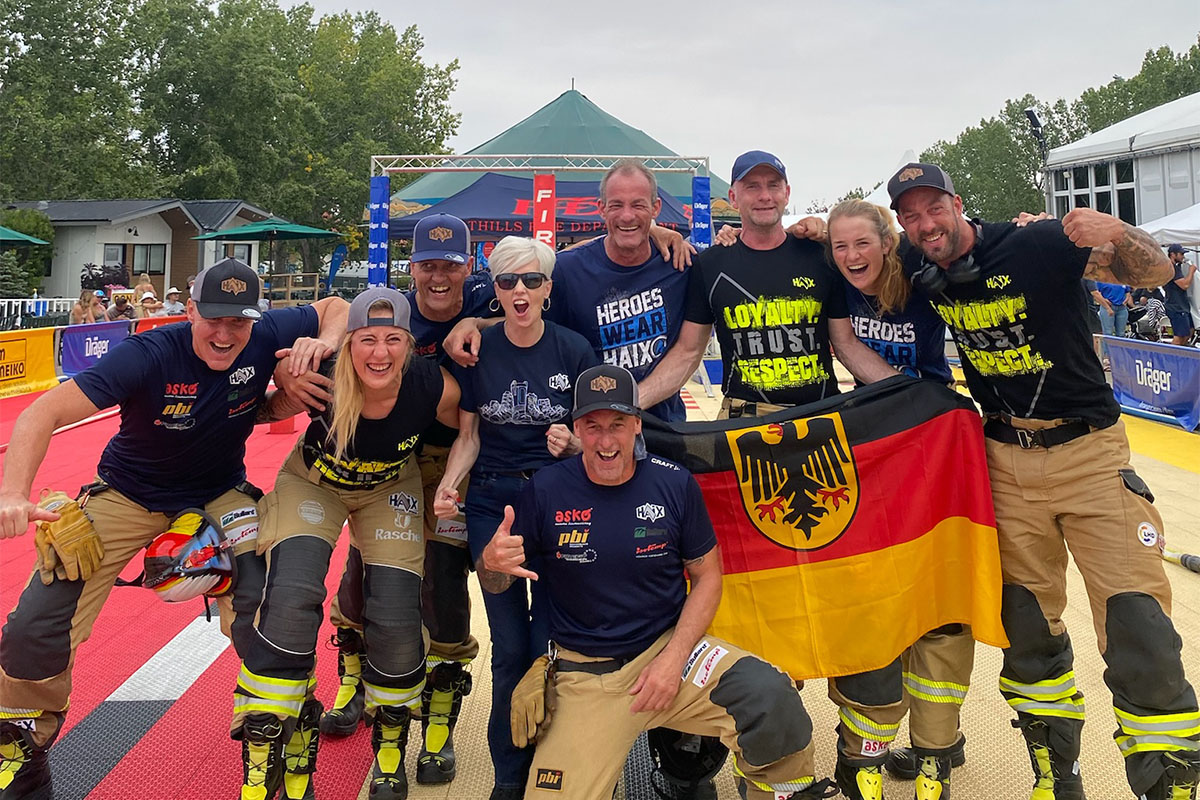Life and death situations in the townships
An ambulance escorted by police, patients with gunshot wounds and stab wounds – in parts of Cape Town, this is the daily reality. And in the middle of this reality is Daniel Knogler, an emergency paramedic from Vienna. His internship in Cape Town has stayed with him to this day.
“Three men were fighting for their lives on the ground. They were still tied up, and the ropes that bound them had been used to drag them over the road surface. Stones as big as a fist lay around, smeared in blood. Oozing and half-encrusted pools of blood, in which smashed teeth could be seen glinting, were everywhere. One of the victims had a split skull. The other two had suffered knife wounds to the chest and back. The persons in question were three suspected rapists. The police said later that those attacked in this way were sometimes shown to be innocent. “At least there were three of us there,” recalls Daniel. Normally, a single responder attends alone. But in this case, he was accompanied by two Austrian paramedics helping out as interns.
There are districts in Cape Town which an ambulance or single responder will not enter unless accompanied by a police escort. “A brawl was reported,” relates Daniel. “One victim with stab injuries. We arrive on the scene in the company of two police vehicles.” Daniel has been plunged straight into the reality of South Africa. Life here is tougher than could ever be imagined. One rule of thumb applies in critical areas. Never stop! Daniel outlines the first lessons he has taken on board in the suburbs of South Africa’s second-most populous city. “You drive cautiously and very slowly to the edge of the village or to a location near the place of deployment. You then wait for someone to bring the injured person to you or you meet an ambulance at a pre-arranged safe spot. The next thing is to create a safe working environment! You get yourself out of harm’s way by driving a kilometer or more out of the immediate risk zone. Then you can start to stabilize the trauma patient. This is the safest way of going about things in such hot spots.” The state emergency service METRO EMS is constantly reassessing and re-categorizing these districts.
On one of Daniel’s first trips, the team was unable to access the site of the incident directly. The team had to stay where they were in their single responder vehicle, a VW Golf GTD. The report was that an episode of “mob justice” was happening. “The whole village had assembled, 200 incensed people. The police presence seemed tiny by comparison.” With every passing minute, Daniel felt more and more unsafe. The mood was an unhealthy and highly emotional mix of aggressive celebration, hysterical shouting and enraged lamentation.
“We took our three patients with life-threatening injuries and immediately set off for an emergency shock room.” A scenario of this nature would be unthinkable in Daniel’s home city of Vienna. The purpose of the emergency shock room is to provide initial care to severely hurt or polytraumatized patients with the aim of offering a diagnosis and treatment as quickly as possible. Daniel was now confronted with the everyday reality of the situation. “One of the three didn’t make it,” he says in frustration. “There was nothing more we could do.”
Memories like this stick with you. Even now, eighteen months later, Daniel is still finding it difficult to come to terms with the fact that such unbelievably raw violence is taken for granted in some parts of the world. But there was one aspect which particularly gladdened him and his fellow Austrian intern. Despite this level of violence, the four Emergency Care Practitioners (ECP) working on the LC-1 and all their colleagues in Cape Town always approached their shifts cheerfully. They also afforded the two interns an open and friendly welcome.
Daniel Knogler, a 28-year-old paramedic from Vienna, has been completing a series of internships with emergency services all over the world. He has visited the Bomberos de Guayaquil in Ecuador and spent time with various Ambulances Down Under in Australia (SAFE reported). He also made several “guest appearances” in the UK (London Ambulance, South East Coast Ambulance und East Midlands Ambulance). But a placement he undertook in Cape Town (shortly before the coronavirus crisis) proved a source of completely new experiences.
ECP training in Southafrica involves a 4-year degree course leading to an MSc in Emergency Medical Care. As well as attending university, trainees also spend countless hours at a hospital (emergency department, ICU, pediatrics, gynecology, trauma surgery etc.). They also go out in an ambulance and practice on a simulator. An ECP is able to offer patients invasive skills such as Rapid Sequence Induction (RSI), cricothyrotomy or thoracotomy. ECP’s also have a broad range of pharmacological knowledge and are thus able to deliver the very best emergency care. Daniel found the ECP’s based in Cape Town to be “total professionals”.
He joined the single responder Lima Charly 1 (LC-1) for a series of 10 shifts. The vehicle is crewed by a Critical Care Paramedic, a job which requires four years of study (degree in Emergency Medical Care). Lima Charly 1 is attached to a hospital and is dispatched to highly critical emergencies by both public and private sector providers. Virtually all the patients the team treats are suffering from trauma. “Two or three gunshot wounds per shift is nothing unusual here.” This was something which Daniel was about to find out at first hand. “Lima Charly 1’s work in the townships is pre-clinical emergency medicine at a very high level,” he states. Despite the difficult conditions and the scarcity of resources, patients receive a maximum amount of treatment regardless of their origin or the color of their skin. “You quickly learn how to make economical or efficient use of the available materials. You also discover how to improvise rapidly where necessary.” “At least there were three of us there,” recalls Daniel. Normally, a single responder attends alone. But in this case, he was accompanied by two Austrian paramedics helping out as interns.
Full accreditation as a paramedic is required for anyone wishing to undertake an internship of this type in South Africa. This entails a lot of bureaucracy, but the experiences gained are priceless. Daniel has long since been putting his new knowledge to use in his normal day job with the Vienna Ambulance Service. He is aware of the benefits of providing quiet and structured treatment to highly critical patients and has also made strides in his personal emotional development.
His impressions of the Cape are contrasting ones. On the one hand, there are the townships. Founded during the era of apartheid, they house large parts of the non-white population. Many of the inhabitants here live below the poverty line. On the other hand, there are young and cool districts where trendy events such as the weekly Woodstock Market are staged. Then there are the magnificent views that can be enjoyed from a vantage point of more than 1,000 meters high up on Table Mountain. Or the spectacular trip along Chapman’s Peak Drive, one of the best known coastal panoramic roads in the world. “A great city that has left me with many cool impressions,” says Daniel. He could not, however, imagine living there permanently. “You have to be alert at all times, even in the cool districts.” This is one thing which the “locals” have taught him. Always be wary if you want to remain unscathed!
